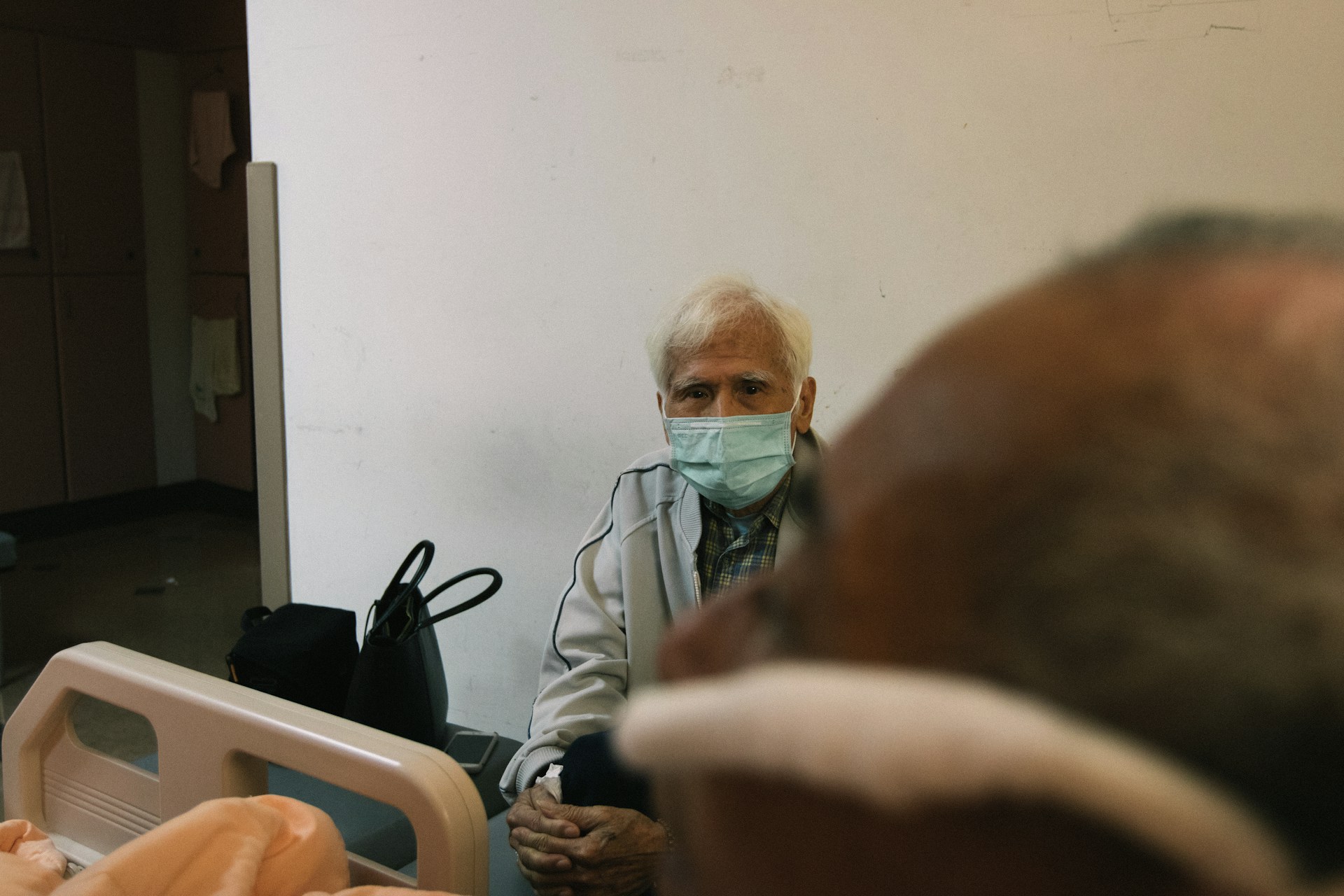Current Knowledge of Gene-Based Nutrition Services among Indonesians to Prevent Non-Communicable Disease
Gambaran Pengetahuan Masyarakat Terhadap Pelayanan Gizi Berbasis Gen dalam Pencegahan Penyakit Tidak Menular di Indonesia

Downloads
Background: Non-Communicable Diseases (NCDs) are the primary health issues in Indonesia, with their prevalence increasing each year. The advancement of technology, such as gene-based nutrition services, could offer an alternative approach to prevent NCDs in the present and future.
Objectives: This study aims to assess the current level of knowledge regarding gene-based nutrition services among Indonesians for NCD prevention.
Methods: A qualitative phenomenological study was conducted across five provinces in Indonesia. In-depth interviews were conducted with ten informants, selected using the snowball sampling technique. The research focused on themes such as understanding gene-based nutrition services, genetic knowledge, and the role of gene-based nutritional analysis in NCD prevention. Thematic analysis was performed using NVivo v.14.
Results: The community demonstrated a solid grasp of the concept of genetics and inherited traits. However, they struggled with genetic terminology. Most Indonesians had limited awareness of gene-based nutrition services, although they recognized their benefits in disease detection and dietary management. They also knew that the cost of this inspection was expensive, and individuals expressed concerns about the potential implications of disease risk detection. Participants notably clarified that NCDs are not communicable diseases and can be prevented through gene-based nutritional interventions. Interest in gene-based nutrition services was substantial, yet barriers included cost and facility accessibility.
Conclusions: Indonesians generally possess limited knowledge about genetics, gene-based nutrition services, and genetic testing. However, they acknowledge the significance of genetic-based nutrition services in early NCD prevention, as these services can help determine appropriate dietary patterns and lifestyles.
Programme, U. N. D. Human Development Report 2019 : Beyond income, beyond averages, beyond today. (2019).
Fatma, F. et al. Buku Digital-Dasar Ilmu Kesehatan Masyarakat. Fkm.Unigo.Ac.Id (Penerbit Media Sains Indonesia, 2021).
Khoirunissa, D. H. & Sukartini, N. M. Kesehatan Mental Sumber Daya Manusia Indonesia. J. Sains Sosio Hum. 4, 241–258 (2020).
Puspa, E. A., Jafar, N. & Alwi, M. K. Faktor Yang Memperingati Keaktifan Kunjungan Pos Pembinaan Terpadu Penyakit Tidak Menular (POSBINDU PTM) di Wilayah Kerja Puskesmas Baturube Kabupaten Morowali Utara Tahun 2020. J. Aafiyah Heal. Res. 1, 58–73 (2020).
Aji, A. S. Indonesia Sedang Menghadapi Masalah Triple Burden Malnutrition. fabfit https://fabfit.co.id/interviews/dr-arif-sabta-aji-indonesia-sedang-menghadapi-masalah-triple-burden-malnutrition/ (2019).
Kementerian Kesehatan RI. Hasil Riset Kesehatan Dasar Tahun 2013. Kementrian Kesehatan RI (2013). doi:10.1517/13543784.7.5.803.
Kementerian Kesehatan RI. Hasil Riset Kesehatan Dasar Tahun 2018. Kementrian Kesehatan RI (2018).
Yarmaliza & Zakiyuddin. Pencegahan Dini Terhadap Penyakit Tidak Menular (PTM) Melalui Germas. J. Pengabdi. Masy. Multidisiplin 3, 93–100 (2019).
Siswati, T., Paramashanti, B. A., Rialihanto, M. P. & Waris, L. Epidemiological Transition in Indonesia and Its Prevention: A Narrative Review. J. Complement. Altern. Med. Res. 18, 50–60 (2022).
Masitha, I. S., Media, N., Wulandari, N. & Tohari, M. A. Sosialisasi Pencegahan dan Pengendalian Penyakit Tidak Menular di Kampung Tidar. in Prosiding Seminar Nasional Pengabdian Masyarakat LPPM UMJ 1–8 (2021).
Wirawan, N. N. et al. Metode Perencanaan Intervensi Gizi di Masyarakat. (UB Press, 2018).
Aji, A. S. Personalized Functional Foods: Masa Depan Penerapan Personalized Nutrition Advice. in Prosiding Seminar Nasional Online 303–310 (2020).
Surendran, S. et al. A Nutrigenetic Approach For Investigating The Relationship Between Vitamin B12 Status And Metabolic Traits In Indonesian Women. J. Diabetes Metab. Disord. 18, 389–399 (2019).
Alsulami, S. et al. Interaction Between the Genetic Risk Score and Dietary Protein Intake on Cardiometabolic Traits in Southeast Asian. Genes Nutr. J. 15, 1–10 (2020).
Alfitri, K. N., Februhartanty, J. & Nurwidya, F. Feeding Practices of School-aged Children during COVID-19 Pandemic: A Qualitative Study. Amerta Nutr. J. 6, 155–163 (2022).
Dawadi, S. Thematic Analysis Approach: A Step by Step Guide for ELT Research Practitioners. J. NELTA 25, 62–71 (2020).
Ardini, W. & Bardosono, S. Personalized Nutrition: How To Make It Possible? World Nutr. J. 3, 2–5 (2019).
Vimaleswaran, K. S. GeNuIne (Gene-Nutrient Interactions) Collaboration: Towards Implementing Multi-Ethnic Population-Based Nutrigenetic Studies Of Vitamin B 12 And D Deficiencies And Metabolic Diseases. in Proceedings of the Nutrition Society vol. 80 435–445 (2021).
Subarto, C. B. et al. A Qualitative Study: Mothers' Experience in the Management of Gestational Diabetes Mellitus during and after Pregnancy in Yogyakarta, Indonesia. J. Med. Sci. 10, 180–187 (2022).
Kirana, Z. C. Pentingnya Gen dalam Membentuk Kepribadian Anak ( Perspektif Pendidikan Islam ). 2, (2019).
Darajati, W. et al. Indonesia Biodiversity Strategi and Action Plan 2015-2020. Dk vol. 53 (BAPPENAS, 2016).
Yusuf, S. Psikologi Perkembangan Anak dan Remaja. (PT. Remaja Resdaya Kary, 2016).
Haga, S. B. et al. Public Knowledge of and Attitudes Toward Genetics and Genetic Testing. Genet. Test. Mol. Biomarkers 17, 327–335 (2013).
Vallée Marcotte, B. et al. Current Knowledge and Interest of French Canadians Regarding Nutrigenetics. J. Genes Nutr. 14, 1–8 (2019).
Ordovas, J. M., Ferguson, L. R., Tai, E. S. & Mathers, J. C. Personalised Nutrition and Health. BMJ 361, 1–7 (2018).
Muhammad, H. F. L., Sulistyoningrum, D. C., Kusuma, R. J., Dewi, A. L. & Permatasari, I. K. Buku Ajar Nutrigenomik dan Nutrigenetik Bagi Mahasiswa Gizi. (Gadjah Mada University Press, 2021).
Sharma, P. & Dwivedi, S. Nutrigenomics and Nutrigenetics: New Insight in Disease Prevention and Cure. Indian J. Clin. Biochem. 32, 371–373 (2017).
Fischer, A. R. H. et al. Willingness To Pay For Personalised Nutrition Across Europe. Eur. J. Public Health 26, 640–644 (2016).
De, S. et al. Ethical Aspects of Genotype Disclosure: Perceptions of Participants in a Nutrigenetic Study in Finland. Public Health Genomics 24, 33–43 (2021).
Najmah, Mutahar, R. & Yeni. Pengetahuan Dan Riwayat Penyakit Tidak Menular Pada Ibu Rumah Tangga di Kabupaten Ogan Ilir Tahun 2013. J. Ilmu Kesehat. Masy. 6, 6–13 (2015).
World Health Organization. Noncommunicable Diseases. WHO (2022).
Ramos-Lopez, O. et al. Guide For Current Nutrigenetic, Nutrigenomic, and Nutriepigenetic Approaches For Precision Nutrition Involving The Prevention and Management of Chronic Diseases Associated With Obesity. J. Nutrigenet. Nutrigenomics 10, 43–62 (2017).
Copyright (c) 2024 Amerta Nutrition

This work is licensed under a Creative Commons Attribution-ShareAlike 4.0 International License.
AMERTA NUTR by Unair is licensed under a Creative Commons Attribution-ShareAlike 4.0 International License.
1. The journal allows the author to hold the copyright of the article without restrictions.
2. The journal allows the author(s) to retain publishing rights without restrictions
3. The legal formal aspect of journal publication accessibility refers to Creative Commons Attribution Share-Alike (CC BY-SA).
4. The Creative Commons Attribution Share-Alike (CC BY-SA) license allows re-distribution and re-use of a licensed work on the conditions that the creator is appropriately credited and that any derivative work is made available under "the same, similar or a compatible license”. Other than the conditions mentioned above, the editorial board is not responsible for copyright violation.












































